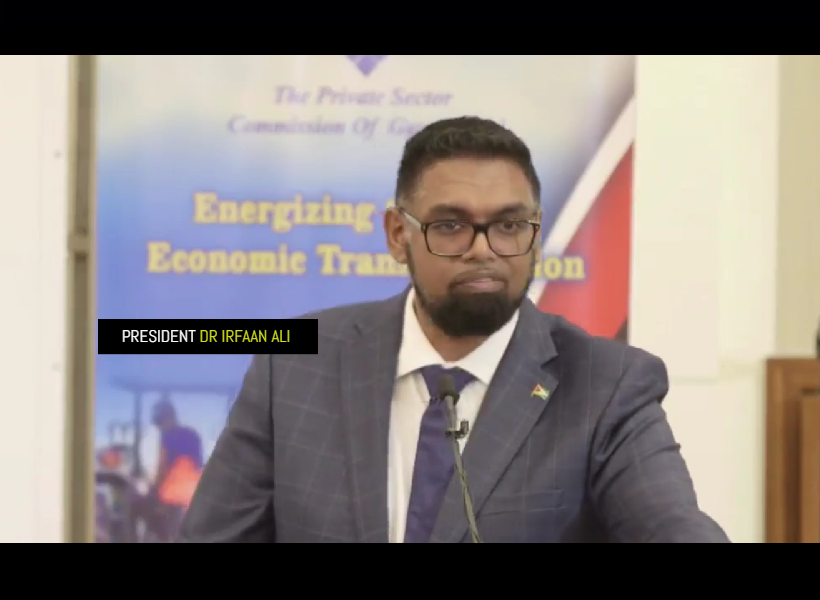President Irfaan Ali on Thursday announced plans to strengthen the country’s Financial Institutions Act (FIA). This announcement comes in the wake of U.S. sanctions on the Mohamed’s family.
During a press conference this afternoon, President Ali highlighted the proposed amendments to the FIA which he noted are part of a broader strategy to align Guyana’s financial systems with international standards. President Ali explained that the rapidly growing economy and the increasing complexity of financial instruments necessitate these reforms. “We have all these sophisticated financial instruments that we will have to deal with. And we have very sophisticated financial institutions that we have to deal with,” he noted.
The new legislation will focus on ensuring compliance with international banking standards and the core principles of banking supervision. According to President Ali, these changes are designed to elevate Guyana’s financial sector to a “top tier” status, surpassing other jurisdictions in the region. “We are going to be adopting the latest legal framework, the latest rules, the latest regulations, and the latest principles governing the banking sector,” he stated.
One of the key components of the amendments will be facilitating the establishment of representative offices by foreign financial institutions in Guyana. While these offices will not be permitted to conduct traditional banking or financial business, they will play a crucial role in connecting investment opportunities with capital, thereby stimulating foreign direct investment. President Ali emphasized the global trend of mainstream financial institutions moving away from retail banking and focusing on wealth management and investment facilitation. “They can offer a service that will be a stimulant for foreign direct investment by connecting capital’s investment opportunities,” he explained.
Another significant aspect of the proposed amendments is the provision for greater regulatory oversight of licensed financial institutions. The new regulations will ensure that fees and charges for services are set fairly, promoting financial inclusion and maintaining a competitive market. “This is an important part, how we ensure financial inclusion,” Ali noted.
Furthermore, the amendments aim to reduce political interference in the financial sector by limiting the role of the Minister of Finance in regulatory matters. The requirement for banks to consult with the Minister before making regulations or issuing licenses will be removed, thereby granting more autonomy to financial institutions. “We are further removing powers from the Minister of Finance and we are empowering the banks, giving them more independence,” Ali asserted. This move is seen as a step towards creating a more transparent and accountable regulatory environment.
As mentioned, the backdrop to these reforms is the recent imposition of U.S. sanctions on the Mohamed family, which has heightened the urgency for legislative changes in Guyana’s financial sector.
The US Treasury Department had imposed the sanctions on Guyanese Businessmen Nazar Mohamed, his son Azruddin Mohamed and the Permanent Secretary of the Ministry of Labour Mae Thomas Toussaint for alleged corruption. This included a US$50 million tax evasion scheme involving gold exports and alleged bribery of customs and government officials to facilitate these illicit activities.













